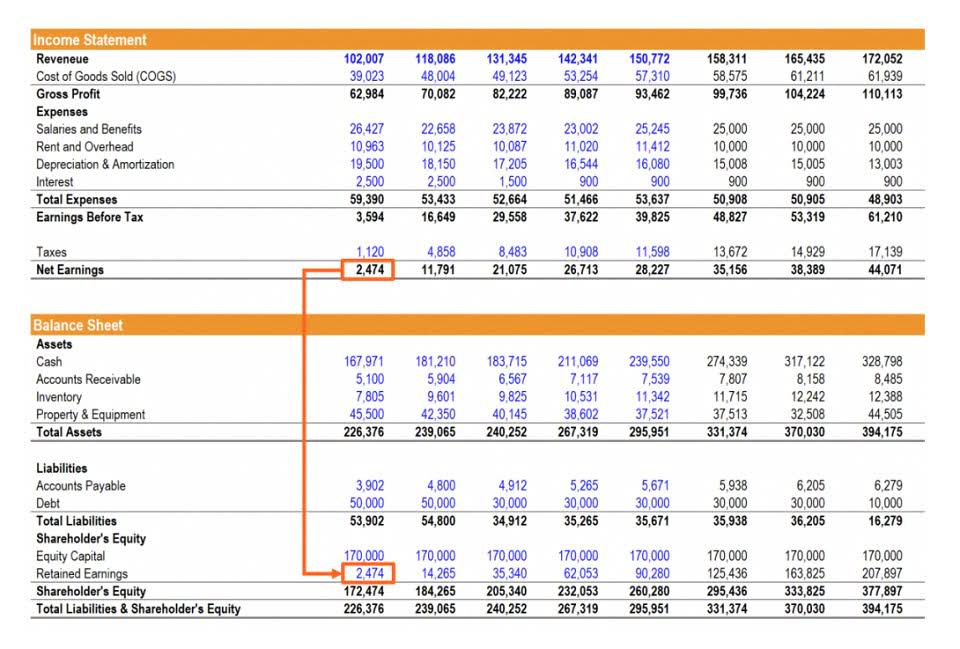
Bookkeeping, often regarded as the foundation of financial management, involves recording daily financial transactions in a systematic and organized manner. Unlike accounting, which analyzes these transactions to provide insights into financial performance, bookkeeping focuses on the accurate documentation and categorization of financial data. Simply put, it serves as a vital tool for stakeholders, including investors, creditors, and even internal management, to assess the financial performance and stability of the business. net sales By providing a clear snapshot of the company’s assets, liabilities, and equity, financial statements enable informed decision-making, strategic planning, and performance evaluation. Whether it’s tracking revenue trends, monitoring expenses, or assessing profitability, robust financial reporting lays the foundation for sustainable growth and success.

Salaries and Benefits
- Although the process may appear straightforward and automated, it requires financial experts to ensure it is completed without issue.
- Activities are typically conducted daily or weekly, depending on transaction frequency.
- This decision varies based on your business size, complexity of payroll, and whether you have qualified staff to handle it in-house.
- The main difference between bookkeeping and accounting is each role’s focus.
- While bookkeeping and payroll support overall finance health, they diverge across processes, timing, regulations, and required skill sets.
While these terms are often used bookkeeping and payroll services interchangeably, they serve distinct purposes within the realm of financial management. In this section, we’ll conduct a comparative analysis of accounting, payroll, and bookkeeping, highlighting their unique features and functions, and addressing common misconceptions and overlaps. Now, you might be wondering, what exactly are the key principles and practices that govern the realm of accounting?

Key Takeaways
Bookkeeping and payroll are two crucial elements of business financial management. They require distinct approaches but are equally important for maintaining a healthy business. By understanding their differences, business owners can manage their finances more effectively. This understanding not only aids in avoiding financial mistakes but also contributes to the longevity and success of the business. Whether you manage tasks yourself or hire professionals, keeping these differences in mind ensures better financial health and a stronger foundation for your business.
- Given the complexity of payroll, it’s easy to see why it falls under either accounting or HR.
- They require distinct approaches but are equally important for maintaining a healthy business.
- Bookkeepers also deposit money, cash checks, and ensure correct credit card transactions.
- You can set up your payroll accounting software to automate issuing regular employee payments.
- Make sure that your payroll system and processes are up to date with the latest requirements to avoid penalties.
Bookkeeping vs. Payroll: Key Differences Every Business Owner Should Know

Taxes and other deductions are based on the forms your employees fill out. The forms will tell you how much of an employee’s wages you should deduct each pay period. Calculations will also depend on your state and sometimes your city or county.
Unlocking Growth: The Role Of Consulting In Financial Strategy
The accountants dig deeper into the records to understand the current and future trends, create insightful and detailed reports, and aid financial Bookkeeping for Etsy Sellers decisions. Professional accountants often require certifications such as CPA or ACCA to guarantee their skill and credibility, given the sensitive nature of the role. The expected job decline is primarily due to cloud computing and other software innovations automating bookkeeping tasks that a person would normally do.

It is quite common to need the services of both a bookkeeper and an accountant, which is why it is crucial to understand which financial professional performs which tasks. Regardless of how much money you make, accountants are often the last line of defense against financial blunders. Kiyosaki recognizes this, reminding you of the importance of accurate financial reporting. Because of this additional skill set, accountants are more likely to take on leadership roles. If you have a financial department in your company, it is most likely run by someone with an accounting background. Get your employees paid without hassle with instant employee payslips, let us handle all matters HMRC.
Key functions of bookkeeping:
Accountants are largely responsible for the financial health of a business. If they notice expenses are going over budget or under budget, they can look into what’s causing this discrepancy and make recommendations to resolve these problems. Accountants are more specialized, so not every company has an in-house accountant. You can use a firm or work with accounting software for your business needs.

What’s the difference between bookkeeping and accounting?
- Bookkeeping lays the groundwork by tracking and organizing financial data, while payroll ensures employees are paid accurately and in compliance with legal requirements.
- Now that we have a comprehensive understanding of accounting, payroll, and bookkeeping, the next step is to determine the most suitable financial management approach for your business.
- Find out more on bookkeeping accounting skills, how to earn accounting degrees and bookkeeping certifications, getting jobs, salary expectations, and more.
- Push Operations is driven by an automated platform that eliminates that potential for error.
- Get your employees paid without hassle with instant employee payslips, let us handle all matters HMRC.
Without accurate financial reports, management would never know if the company if financially healthy or not. Bookkeepers handle the recording aspect of all accounting processes, accountants handle all parts of the accounting process. A bookkeeper records the day-to-day financial transactions of a business. As a leading Chartered Accountancy Firm in London, we proudly serve businesses of all sizes. With more than 46 years of combined consultancy experience, our team expert accountants handle complex financial needs efficiently and accurately.







